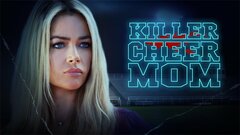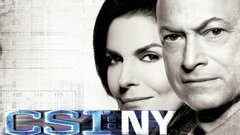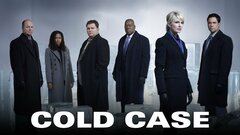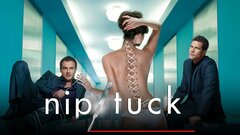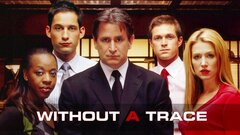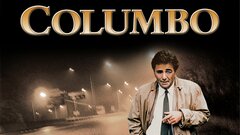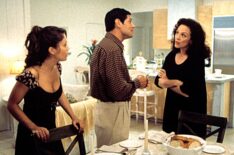After a year of playing the good guy on Fox's upstart nighttime drama "Melrose Place" (1992-1999), actor Thomas Calabro suddenly find his character doing an about-face, becoming the man viewers loved to hate. After years of bit parts in movies and on television, Calabro finally had a role he could sink his teeth into; one that endeared the native New Yorker to millions of viewers, despite his weasel-like moves onscreen. Unlike many of his co-stars, however, Calabro was unable to build off his success from "Melrose" after the show went off the air, though he did remain a viable and steadily-working performer on guest spots and in made-for-TV movies.
Calabro was born on Feb. 3, 1959 in Brooklyn, NY, where his parents raised him and his sister Susan. He spent much of his childhood in the borough of Queens, where he waited on customers at his father's luncheonette and newspaper stand. At Stuyvesant High School, he played football and had designs on someday making the cut as an NFL quarterback. After graduation in 1977, he attended college at nearby Fordham University, where his dreams of athletic glory were suddenly overtaken by a love of acting. Calabro took to his new passion with great alacrity, even taking on the role of Oberon in Shakespeare's "A Midsummer Night's Dream" after classmate and future movie star Denzel Washington dropped out. Calabro solidified his training at the Circle Repertory Company and the illustrious Actors Studio in Manhattan.
After landing several commercials in the early 1980s, Calabro formally began a screen career in 1984, appearing in that year's crime thriller "Exterminator 2." A year later, he could be seen on the small screens, acting in "Out of the Darkness" (1985), a CBS made-for-television movie examining the hunt for "Son of Sam" killer David Berkowitz. In 1987, Calabro appeared in a notable role in the off-Broadway play "Wild Blue," playing a young gay man in the segment "Rules of Love." It was not until 1988 that the actor returned to television screens, this time with an ABC telefilm, "Ladykillers." His character, Cavanaugh, was a policeman who went undercover in a strip club to become its next hot dancer. Calabro followed up with NBC's short-lived drama series "Dream Street" (1989), shot in Hoboken, NJ, about a working-class community.
Calabro put his New York attitude to use on the East Coast actor's staple "Law and Order (NBC, 1990- ), as well as the syndicated miniseries "Vendetta: Secrets of a Mafia Bride" (Syndicated, 1991). By the early 1990s, Calabro had also made the leap to Los Angeles and began working quickly, appearing on one of the Columbo telefilms, "No Time to Die" (ABC, 1992). By mid-1992, Calabro was cast in "Melrose Place," producer Aaron Spelling's spin-off of "Beverly Hills, 90210" - and the rest was history.
The spin-off series focused on the hopes and dream-filled lives of the residents of a Los Angeles apartment complex - versus the same concept taking place at East Beverly High on its sister show. Originally, Calabro saw himself playing Billy Campbell, the unassuming quiet single guy of the building - not the dutifully married doctor Michael Mancini. After the first season, which surprisingly lacked serious sizzle, producers retooled the entire show, adding actress Heather Locklear as a conniving, tough-minded landlord. Meanwhile, Calabro's character became a philandering, crafty schemer and one of the show's top villains - breaking poor, devoted wife Jane Mancini's (Josie Bissett) heart on more than one occasion.
As "Melrose Place" took off, Calabro took time out for the occasional made-for-television project, first tackling the role of a detective in "Sleep, Baby, Sleep" (ABC, 1995), then a charismatic con-artist trucker in "Stolen Innocence" (CBS, 1995), both opposite actress Tracey Gold. In 1995, Calabro appeared on the big screen as Nicky "Shoes" Piazza in the Queens drama "Made Men" (1996). He also started to appear in projects on his Fox home turf in 1996, guest-starring on the sitcom Thomas Hayden Church and Debra Messing sitcom, "Ned and Stacey" (1995-1997) and shooting the prostitution drama "L.A. Johns" (1997) later that year.
When "Melrose Place" came to a highly publicized and campy close at the end of the 1998-99 season, Calabro was the only series regular to appear on the show throughout its entire run. During three of its later seasons, Calabro - who perhaps knew the show better than most - had directed four episodes. After the hectic daily schedule of "Melrose Place," Calabro was free to pursue other projects, though anything resembling his previous success was hard to come by. In late 1999, Calabro went into a series of telefim projects, first playing Ray, the best friend of a deceased hockey player in the supernatural drama "Ice Angel" (2000); then appearing in the E! comedy "The Best Actress" (2000), playing a magazine writer while providing the film's narration. Also in 2000, Calabro took the lead in the made-for-TV horror film, "They Nest" (USA, 2000), playing a local doctor trying to save a Maine island from an infestation of killer bugs.
Working more sporadically, Calabro returned to features to play one of several beleaguered sons who attempt to reconnect with their father in the low-budget comedy "Face to Face" (2001). After filming the pilot for "Hard Knox" (2001), he made a complete return to work with the feature thriller "The Perfect Husband" (2004), then finished out the year on Hallmark's holiday television movie "Single Santa Seeks Mrs. Claus." The next year, Calabro was back on major network programming, playing Dr. Abrams on an episode of F/X's plastic surgery drama "Nip/Tuck" (2003-10), then a district attorney on "Cold Case" (CBS, 2003-10). Meanwhile, Calabro had prominent roles in a couple of television movies, co-starring in the sci-fi thriller "Ice Spiders" (Sci-Fi, 2007) and the crime thriller "'Til Lies Do Us Part" (Lifetime, 2007).
